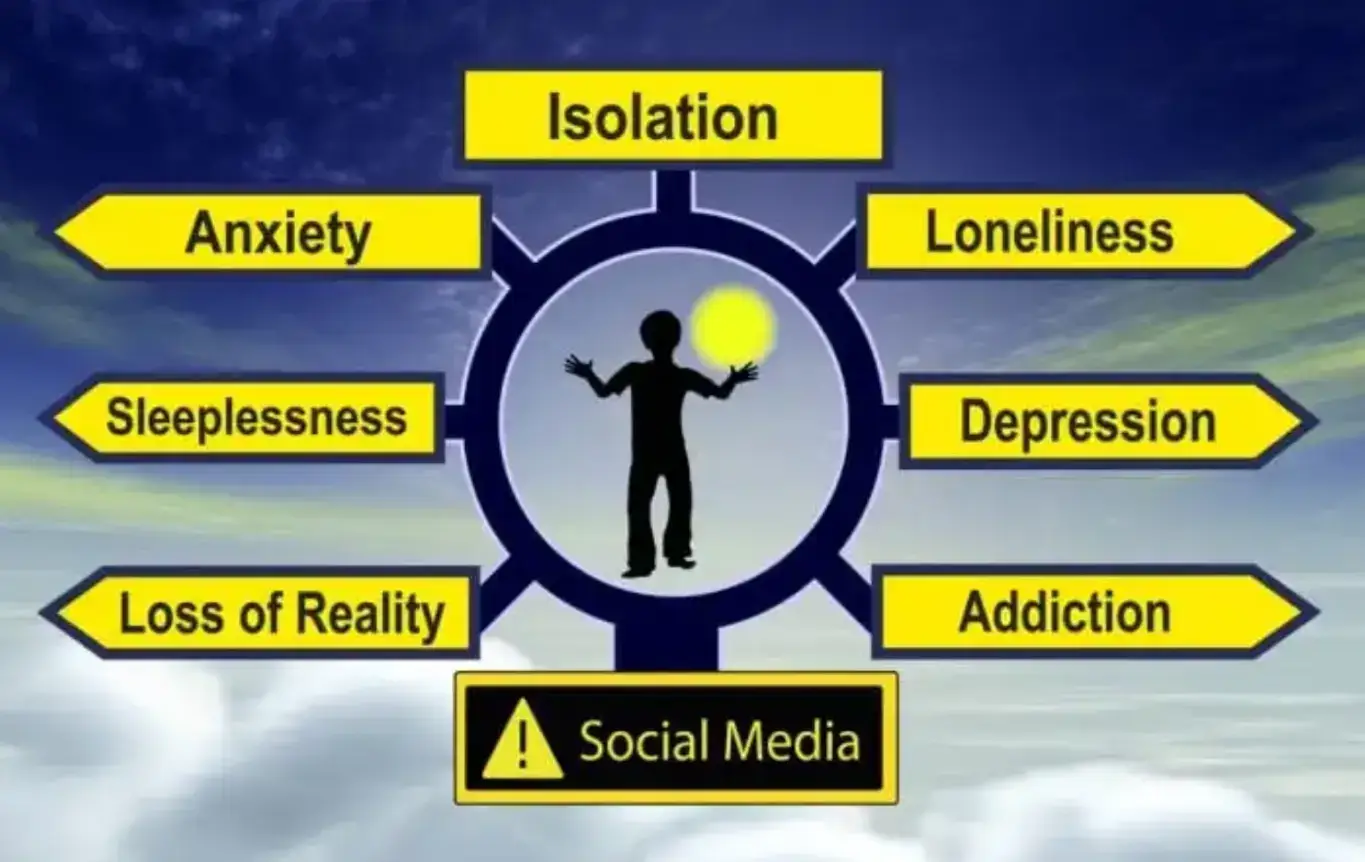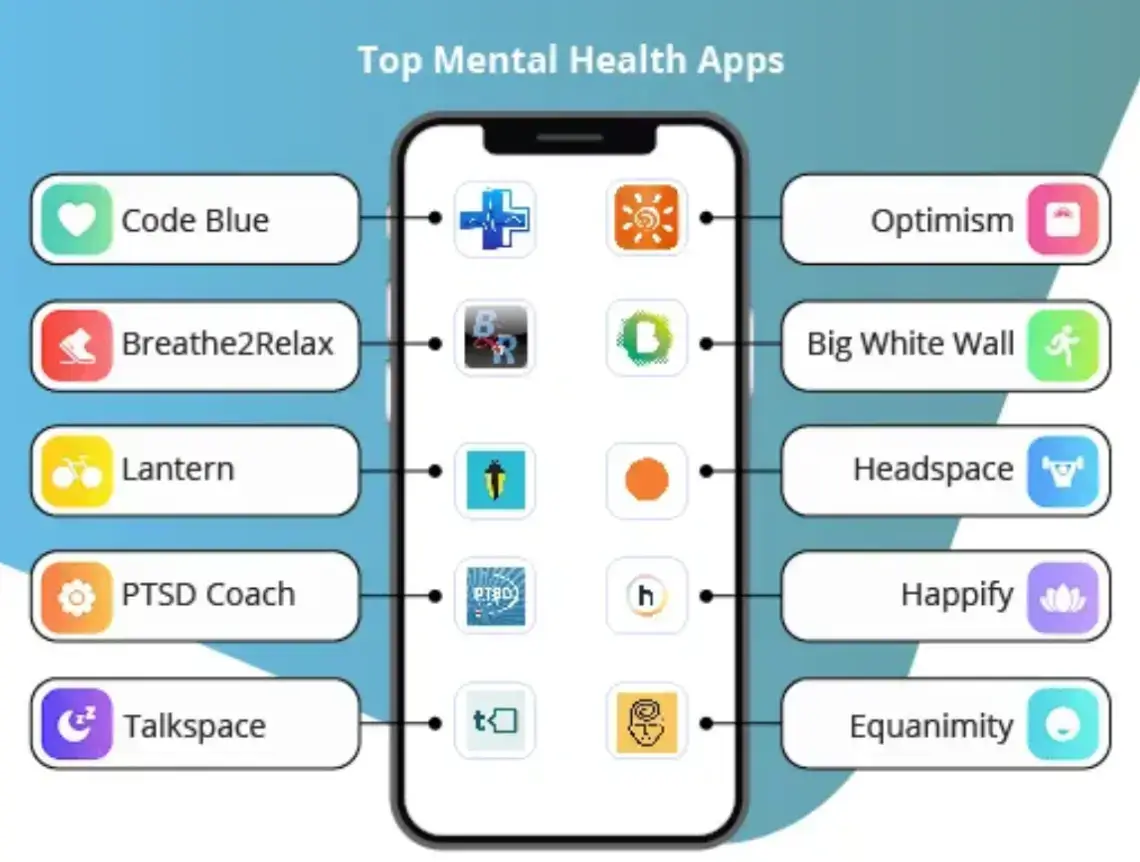Social media has become an integral part of our daily lives in today's digital age. Platforms like Facebook, Instagram, Twitter, and TikTok connect us with friends and family, provide a space for self-expression, and keep us informed about the world around us.
However, the widespread use of social media also raises concerns about its impact on mental health.
While it offers numerous benefits, such as fostering relationships and providing access to valuable information, it also poses significant risks, including addiction, cyberbullying, and the perpetuation of unrealistic standards.
Instagram has been subject to controversy about how their algorithm targets young users and TikTok has been questioned about their cyber security systems.
Article Shortcuts:
- Positive Impacts of Social Media on Mental Health
- Negative Impacts of Social Media on Mental Health
- Psychological Mechanisms at Play
- Strategies for Healthy Social Media Use
- Resources and Support
Understanding the pros and cons of social media on mental health is essential for making informed decisions about how we engage with these platforms.
This guide aims to provide a comprehensive overview of social media's positive and negative effects on mental well-being, examining both its supportive and detrimental aspects.
This guide explores the psychological mechanisms behind social media use and offers strategies for healthy engagement. Its goal is to empower individuals to harness the benefits of social media while mitigating its adverse effects.
Whether you're a casual user or a social media enthusiast, understanding its impact on mental health is crucial for maintaining a balanced and healthy digital life.
Overview of Social Media
Social media encompasses a variety of online platforms that facilitate the creation and sharing of information, ideas, interests, and other forms of expression through virtual communities and networks.
These platforms include social networking sites like Facebook and LinkedIn, microblogging services like Twitter, photo and video sharing apps like Instagram and TikTok, and messaging services like WhatsApp and Snapchat.
Globally, social media usage has skyrocketed, with over 4.5 billion people active on these platforms as of 2023. This widespread adoption cuts across all age groups, with particularly high engagement among teenagers and young adults.
The average user spends approximately 2.5 hours daily on social media, reflecting its significant role in daily life.
Demographically, social media users vary widely, but trends show higher usage rates among younger generations. For instance, platforms like Instagram and TikTok are especially popular among teenagers and young adults, while Facebook has a more diverse age range of users.
Geographic differences also exist, with higher penetration rates in North America and Europe compared to some parts of Africa and Asia, although the latter regions are rapidly catching up.
Understanding these dynamics is crucial for analyzing social media's impacts on mental health, as different platforms and usage patterns can influence psychological well-being in various ways.
Positive Impacts of Social Media on Mental Health
Social media offers several benefits that can positively influence mental health.
One of the most significant advantages is connectivity and support. Social media platforms allow individuals to maintain relationships with family and friends, regardless of geographical barriers.

Source: Montare Behavioral Health
It also provides a space for people to find communities with shared interests and experiences, fostering a sense of belonging.
Support groups on platforms like Facebook or Reddit offer invaluable help to those dealing with mental health issues, providing peer support and shared coping strategies.
Another critical benefit is access to information and resources. Social media is a powerful tool for spreading educational content on mental health, raising awareness, and breaking stigmas.
Mental health organizations can reach a broad audience through campaigns and informative posts that offer tips, resources, and support.
Self-expression and creativity thrive on social media.
Platforms like Instagram, TikTok, and Twitter provide outlets for artistic expression and personal storytelling. Sharing personal stories and experiences can be therapeutic for individuals and inspiring for others facing similar challenges.
Lastly, social media can enhance professional networking and opportunities.
Platforms like LinkedIn connect individuals with career opportunities, mentorships, and collaborations, which can boost self-esteem and professional growth. By leveraging these positive aspects, individuals can use social media to enhance their mental health.
Negative Impacts of Social Media on Mental Health
-
Comparison and self-esteem issues
Social media often highlights idealized versions of life, leading users to compare themselves with others.
This can result in diminished self-esteem and body image issues, as users may feel they fall short of the unrealistic standards of beauty, success, and lifestyle presented online. Continuous exposure to these curated images and updates can exacerbate feelings of inadequacy and anxiety.
-
Cyberbullying and harassment
The anonymity provided by social media platforms can lead to an increase in cyberbullying and online harassment. Victims of such behavior often experience significant emotional distress, leading to depression, anxiety, and in severe cases, suicidal thoughts.
The pervasive nature of online harassment makes it difficult for individuals to escape, worsening the psychological impact.
-
Addiction and time management
Social media platforms are designed to be addictive, with features like endless scrolling and frequent notifications. This addiction can disrupt daily routines, reducing productivity and real-life social interactions.
Excessive use of social media has been linked to sleep disturbances, increased stress levels, and a decline in overall well-being.

Source: Clay Behavioral Health Center
-
Privacy concerns
The widespread sharing of personal information on social media platforms raises significant privacy concerns. Data breaches and misuse of personal information can lead to heightened anxiety and stress.
Users often feel vulnerable, knowing that their private lives are exposed to a vast and often unknown audience, contributing to a sense of insecurity and mistrust.
These negative impacts highlight the importance of mindful and moderated use of social media to protect mental health.
Psychological Mechanisms at Play
Social media profoundly influences the brain’s psychological mechanisms, impacting mental health. One significant factor is the role of dopamine and reward systems.
Social media platforms are designed to trigger dopamine release, a neurotransmitter associated with pleasure and reward. Every like, comment, or share provides a quick dopamine hit, encouraging repeated use and creating a cycle of addiction.
This can lead to compulsive checking and an over-reliance on social media for positive reinforcement.
Another mechanism is the Fear of Missing Out (FOMO). Social media constantly showcases others’ highlights, which can create a perception that others are leading more fulfilling lives.
This fosters anxiety and a persistent need to stay updated, leading to excessive social media use and feelings of inadequacy when comparing one’s own life to the seemingly perfect lives displayed online.
Echo chambers and confirmation bias also play a crucial role. Social media algorithms often show content that aligns with users' existing beliefs, reinforcing their views and limiting exposure to differing perspectives.
This creates an echo chamber where one’s beliefs are constantly validated, reducing critical thinking and openness to new ideas. Such environments can heighten stress, anxiety, and hostility, especially when confronted with opposing views outside of social media.
Understanding these mechanisms helps in recognizing the underlying reasons for social media’s impact on mental health and emphasizes the importance of mindful and balanced use.
Strategies for Healthy Social Media Use
Maintaining a healthy relationship with social media requires intentional strategies.
Setting boundaries is crucial. This includes limiting time spent on platforms through time management tools and scheduled breaks to ensure balanced offline activities.
Curating a positive feed involves consciously following accounts that uplift and educate while unfollowing or muting those that evoke negative emotions or spread misinformation. This proactive approach helps create a more supportive online environment.
Mindfulness and self-awareness play significant roles in managing social media use. Regularly checking in with oneself to gauge emotional responses to content can prevent negative impacts on mental health.
Practicing digital detoxes—periods of complete disconnection from social media—can refresh one’s mind and foster real-life connections.
Additionally, mental health apps and tools can provide structured support. Apps designed to monitor and limit social media usage, as well as those offering mental wellness resources, can be beneficial.
When social media use starts to significantly affect daily life, it is recommended that you seek professional help. Therapists and counselors can provide personalized strategies for managing social media use healthily.
By integrating these practices, individuals can enjoy the benefits of social media while mitigating its potential negative effects, promoting a balanced and healthier digital life.
Resources and Support
In navigating the complexities of social media's impact on mental health, accessing resources and support systems is crucial for maintaining well-being:
1. Mental Health Apps and Tools: Numerous apps are available to help users manage their social media usage and maintain mental wellness. Apps like Headspace offer guided meditation and mindfulness exercises, while others track screen time to promote healthier habits. These tools empower users to regain control over their digital interactions and prioritize mental health.

Source: Delveinsight
2. Online Mental Health Resources: Websites and forums provide valuable information and support for individuals struggling with the psychological effects of social media. Platforms such as PsychCentral and BetterHelp offer articles, forums, and online therapy options tailored to address issues ranging from cyberbullying to social comparison.3. Professional Help: It is vital to recognize when professional intervention is necessary. Individuals experiencing significant distress or addiction related to social media can benefit from seeking therapy or counseling. Therapists trained in digital wellness can help clients develop strategies to manage their online presence and improve their overall mental health.
By leveraging these resources, individuals can proactively mitigate social media's negative impacts while harnessing its positive potential for connectivity and support.
Taking proactive steps toward digital mindfulness and seeking appropriate support can foster a healthier relationship with social media and promote overall mental well-being.
Conclusion
In conclusion, while social media presents both opportunities and challenges for mental health, its impact ultimately hinges on how individuals engage with and manage their online interactions.
Recognizing its positive aspects, such as connectivity, information dissemination, and avenues for self-expression, underscores its potential as a supportive tool.
However, the negative consequences, from comparison-driven self-esteem issues to the pervasive threat of cyberbullying, highlight the importance of mindfulness in usage.
Strategies like setting boundaries, curating feeds for positivity, and practicing digital detoxes are essential for fostering a healthy relationship with social media.
Moreover, understanding the psychological mechanisms at play—such as dopamine triggers and echo chambers—empowers users to navigate platforms more consciously.
Moving forward, a balanced approach to social media usage involves continual self-assessment and adaptation. By prioritizing mental well-being through informed choices and seeking support when needed, individuals can harness the benefits of social media while mitigating its potential harms.
Ultimately, fostering resilience against the negative impacts requires both personal responsibility and societal awareness. As technology evolves, so too must our strategies for maintaining a healthy digital presence—one that enhances our lives without compromising our mental health.
By integrating these insights into our daily routines, we can cultivate a digital landscape that supports and enriches our overall well-being.
Author Bio
Divashree builds high-authority backlinks for SaaS brands. She is the founder of SAASY LINKS, a white-hat link-building agency that specializes in SaaS brands.




